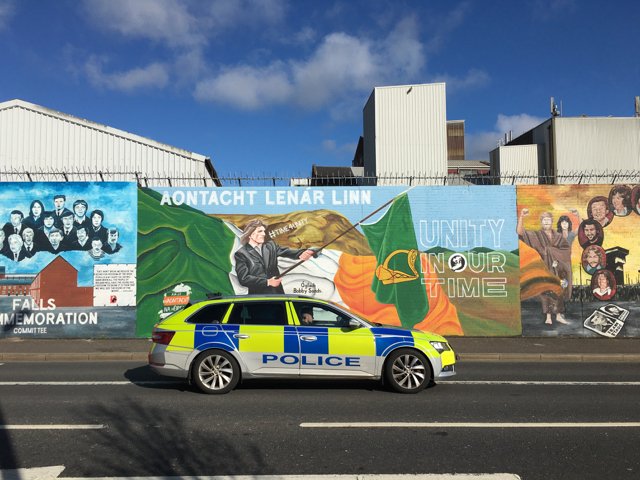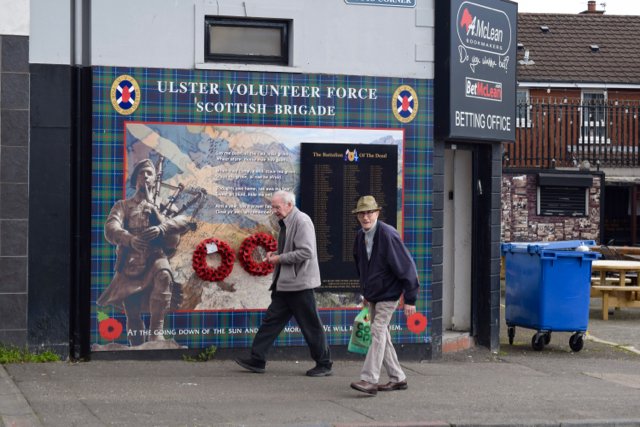Belfast’s political murals
A famous mural painted in 1998 of IRA leader Bobby Sands, who died on hunger strike in 1981 whilst in HM Maze Prison in Northern Ireland.
We loved Belfast with its beautiful red bricks everywhere, reminiscent of Manchester; its hipster edginess like Brick Lane twenty years ago; some grand buildings almost like Vienna, and some abandoned ones like Bucharest. Then there’s the murals, located around Shankill Road and Falls Road, in West Belfast. They’re like nowhere else.
We set out walking early in the morning, a surprisingly beautiful sunny day. We were doing our own mural tour, not one of the famous Black Cab Tours (which cost £50pp). Though ‘The Troubles’ are officially over, the whole area still feels oppressive and deprived. Well, for a start, there’s still a 20 foot wall – ironically called a Peace Line – that runs for several kilometres separating the unionist (predominately Protestants identifying themselves as British) Shankill and nationalist (predominately Catholics identifying themselves as Irish) Falls Road areas, and though some of the famous political murals may mention peace and forgiveness – and indeed tourists are now encouraged to write words of peace on the Peace Line – most are about revenge and retribution, and detail historical crimes the other side perpetrated during The Troubles.
Nationalist murals on the Peace Line.
Nationalist mural on the Peace Line.
Nationalist mural on the side of a house.
Nationalist murals on the Peace Line.
Part of the Peace Line.
Unionist mural on the side of a betting shop.
Unionist mural on the side of a building.
Unionist mural on the side of a house.
Welcome to the Shankill Road.
• Today marks the 25th anniversary of the Good Friday Agreement, signed on 10 April 1998, designed to end 30 years of violent conflict which saw over 3,500 people killed (over half of whom were civilians).
Previously on Barnflakes
James Turrell’s Irish Sky Garden
Irish Post Boxes
Untitled (FIX UR CRACK)
Year Zero, And Then One









